Had a great time @ Grok Conf (unrelated to the AI model)
Some of my notes from the various talks:
- Write more
- Your work is only as good as the team & clients around you
- Internet is in a liminal space | Have fun & be weird
- Play with the things you are scared of
- When you’re holding a bag of money and your client says “hey, be careful with that bag, or I’ll kill you,” things become really clear
- Clients don’t want design, they want design experiences that function as conversations with a trusted partner
- Aim for high conceptual fidelity
- Make your brand a complete thought
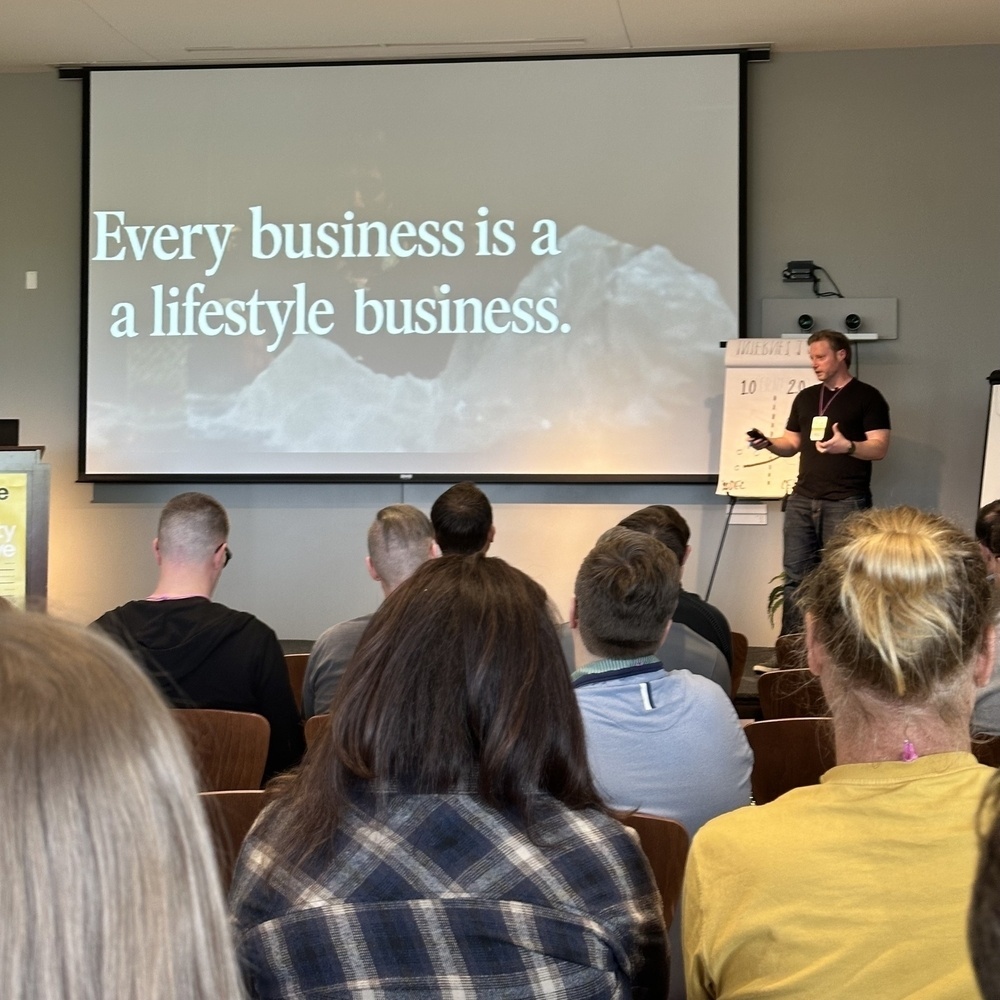
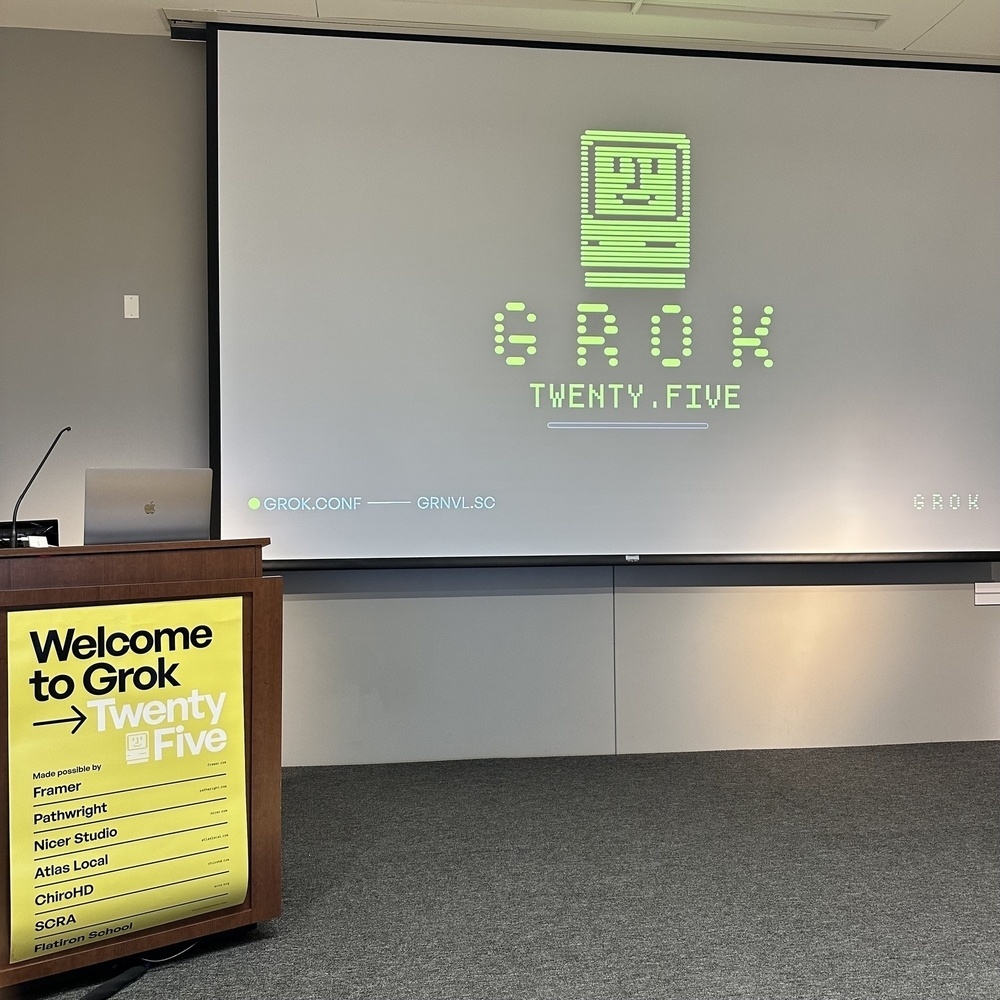

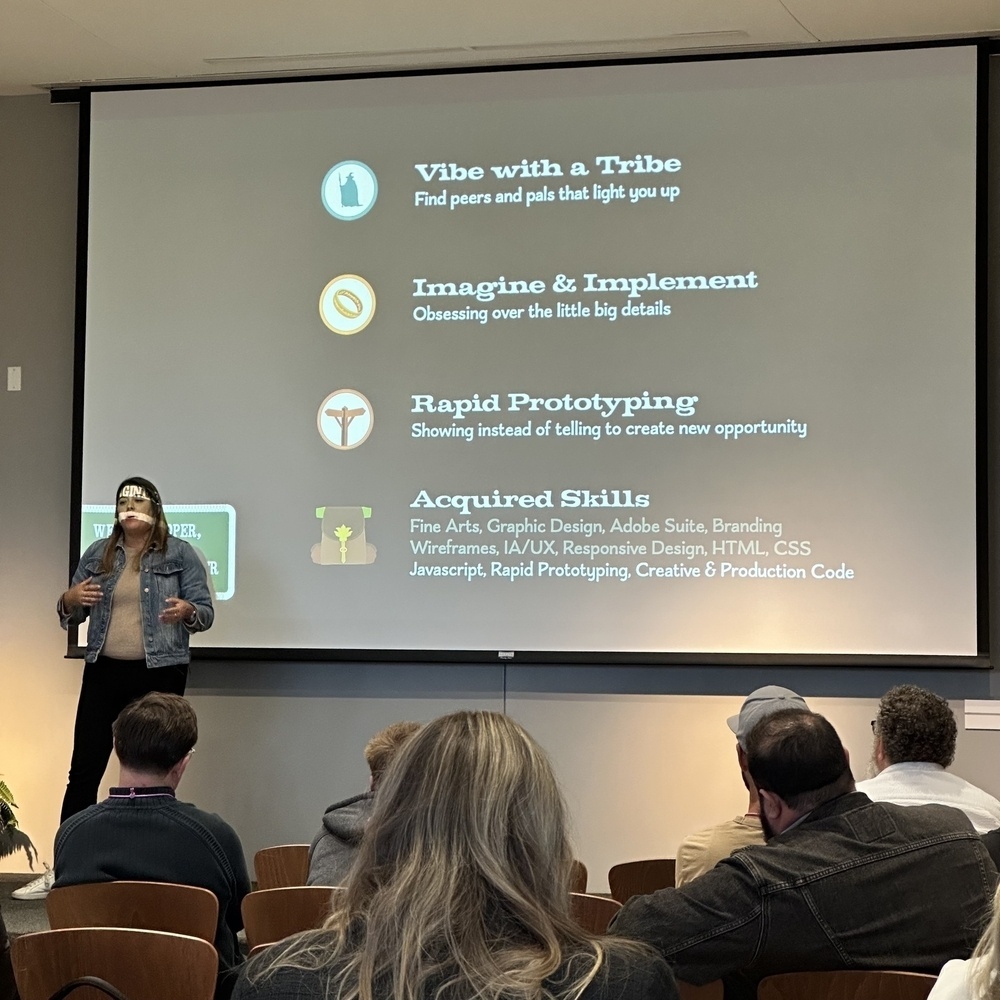
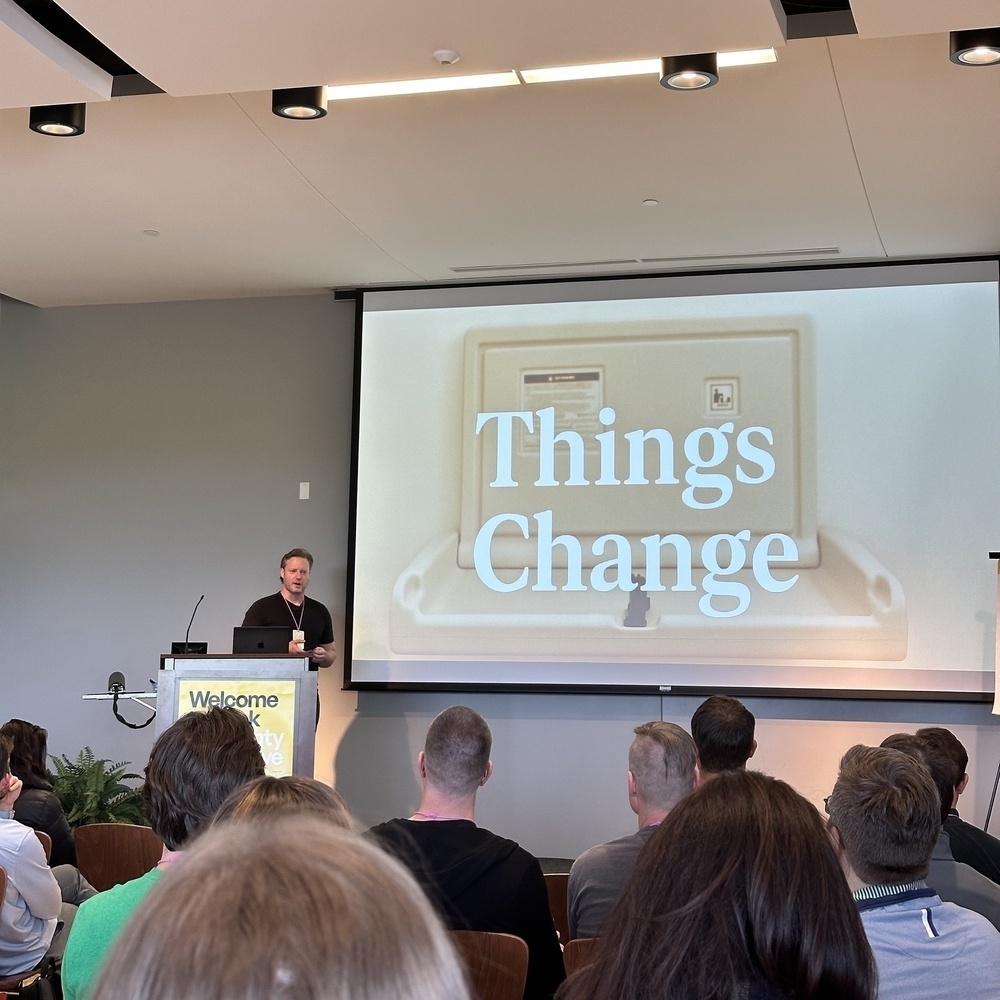

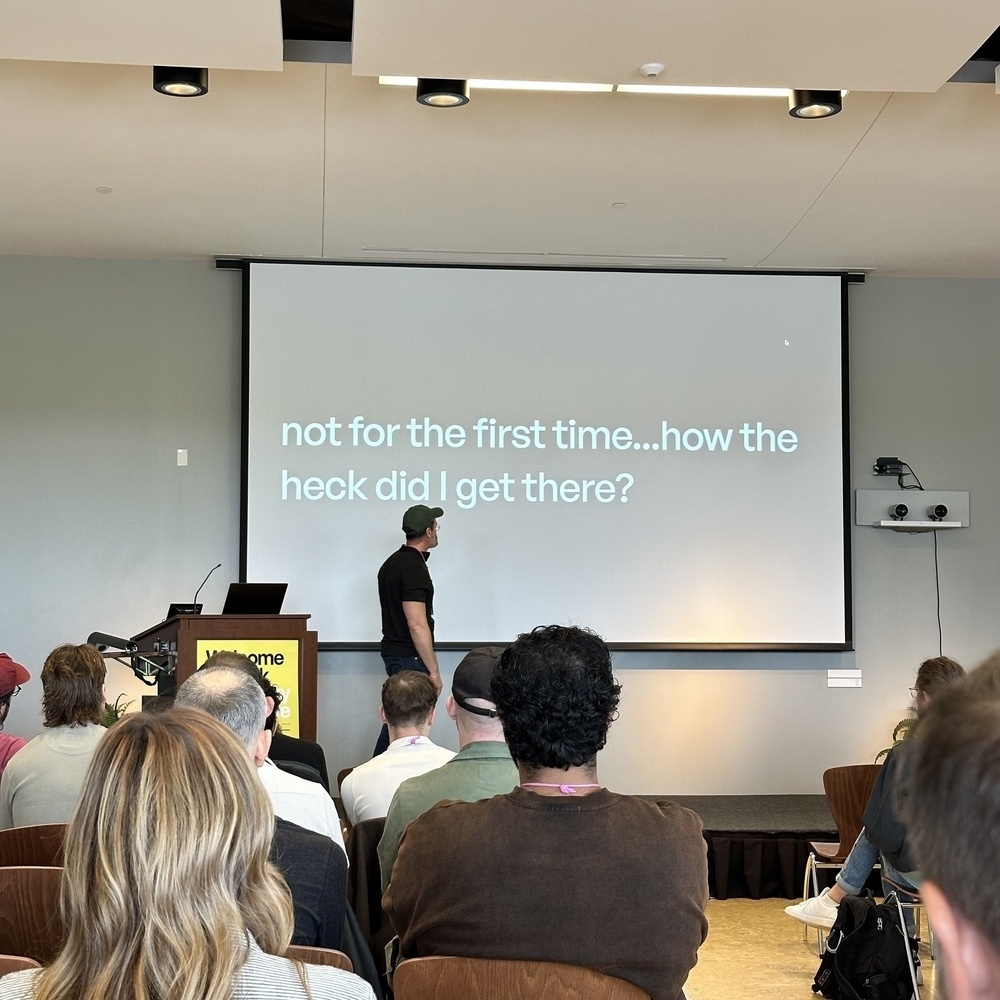
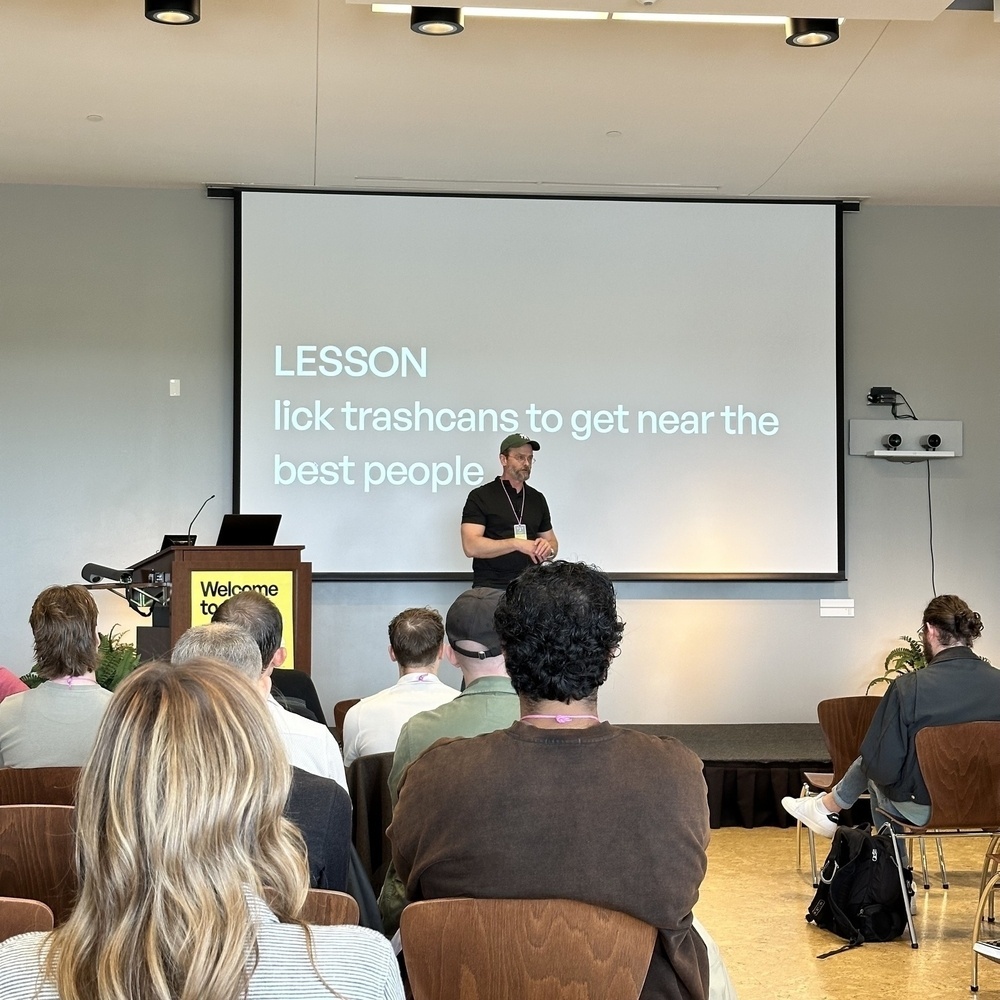
This is true for more than concert tickets
They have to believe that when they expend a tremendous amount of effort leaving the house, getting in the car, parking the car, and buying the ticket…that it was worth the effort. Deep down everyone believes their time is important and how they spend it is important.
Almost every purchase decision represents the only one of those things someone will buy for a period of time—short or long.
Brand reputation is built on where that decision ranks on each person’s regret-reward scale.
Aim for reward.
Google will start using “Landing Page Screenshots for Video Ads for Demand Gen Campaigns” “to improve your YouTube ad performance,” according to emails they’ve been sending to account holders.
I understand all those words, but don’t quite know what this will look like. Couldn’t find any examples.
About those tariffs, they’re on hold. For now. Kind of.
For 90 days, it’ll be 10% on everyone. Except China, who gets all the tariffs at a new 125% rate.
Like TikTok, this deadline might be performative. It’s all about the deal.
(that picture in the second link, oompa loompa in chief)
When thinking about the assets you’re going to create as part of your marketing mix—whether images, video, words, audio, whatever—make sure you are using different pieces to come from different angles. Each piece can appeal to a different audience—or different facet of your audience.

